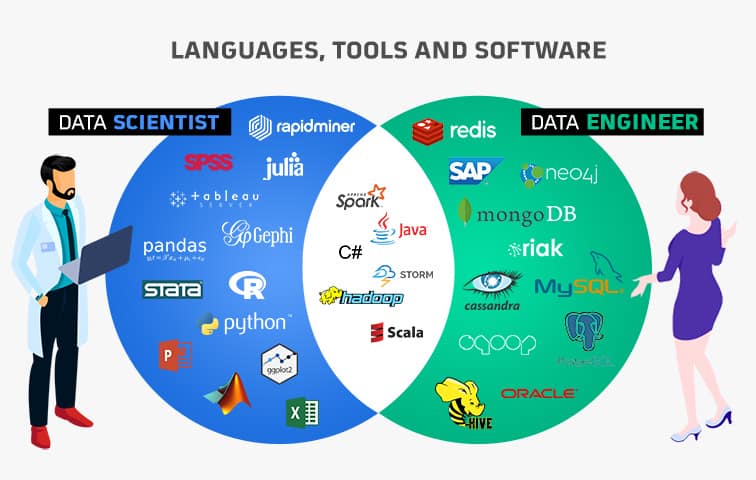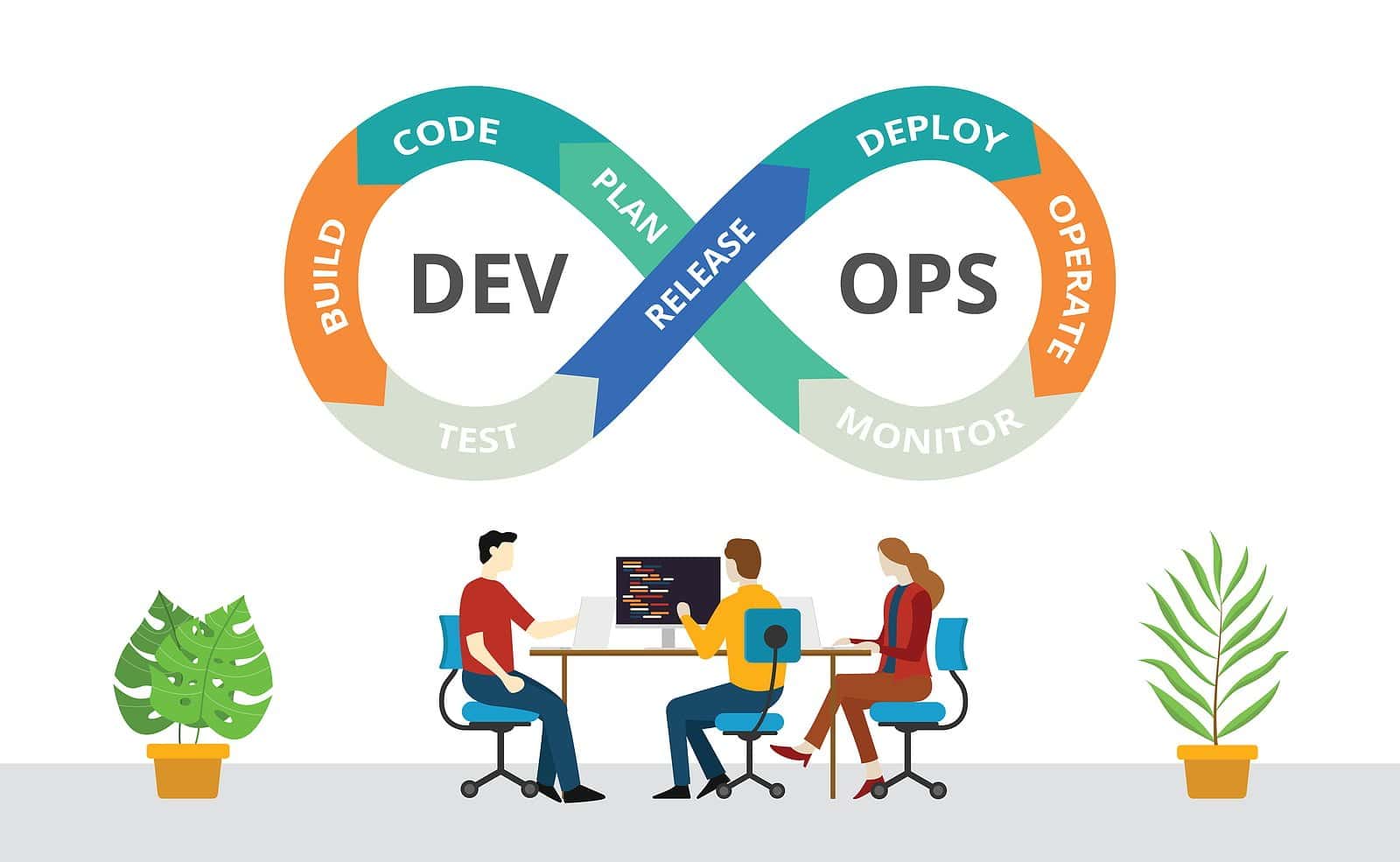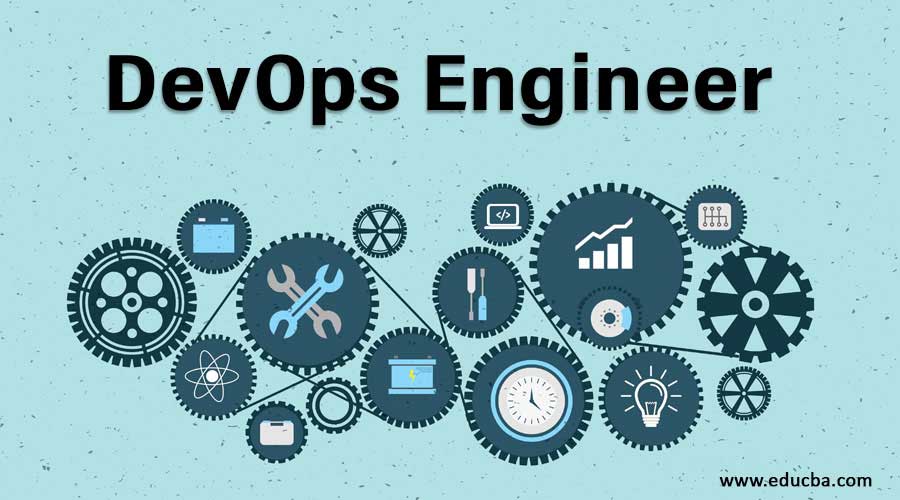Understanding DevOps and Data Engineer Roles
DevOps and Data Engineer are two critical roles in modern organizations, contributing significantly to the development, deployment, and maintenance of software applications and data systems. The “devops vs data engineer” approach emphasizes collaboration, automation, and monitoring to ensure seamless integration and delivery of applications and data services.
DevOps engineers focus on bridging the gap between software development and IT operations teams. They streamline the development process by implementing continuous integration and delivery pipelines, ensuring that code changes are automatically built, tested, and deployed. DevOps engineers also monitor system performance and reliability, addressing any issues proactively to minimize downtime and disruptions.
On the other hand, Data Engineers are responsible for designing, building, and maintaining data pipelines that collect, store, and process large volumes of data. They ensure data quality and security, enabling data scientists and analysts to derive valuable insights from the data. Data Engineers also work closely with these teams to understand their data needs and develop solutions that meet their requirements.
Both roles require a strong understanding of modern technologies, tools, and platforms, as well as excellent communication and collaboration skills. As organizations increasingly rely on software applications and data systems to drive business growth and innovation, the demand for skilled DevOps engineers and Data Engineers continues to rise.
Key Responsibilities of a DevOps Engineer
DevOps engineers play a crucial role in modern software development and operations. They are responsible for ensuring seamless collaboration between development and operations teams, enabling faster and more efficient software delivery. Here are the primary responsibilities of a DevOps engineer:
- Collaboration: DevOps engineers facilitate communication and collaboration between development and operations teams, ensuring that everyone is on the same page regarding project goals, timelines, and deliverables.
- Continuous Integration and Delivery: DevOps engineers manage continuous integration and delivery pipelines, which automate the process of building, testing, and deploying code changes. This enables teams to quickly and reliably deliver new features and updates to users.
- System Reliability and Performance: DevOps engineers monitor system performance and reliability, identifying and addressing any issues that may arise. They use various tools and platforms to ensure that systems are running smoothly and efficiently, minimizing downtime and disruptions.
- Infrastructure Management: DevOps engineers are responsible for managing infrastructure, including servers, storage, and networking resources. They use tools like Terraform, Ansible, and Chef to automate infrastructure provisioning and configuration.
- Security and Compliance: DevOps engineers ensure that systems are secure and compliant with relevant regulations and standards. They use tools like Vault, HashiCorp, and Aqua Security to manage secrets, configurations, and vulnerabilities.
DevOps engineers require a unique set of skills, including technical expertise in programming languages, tools, and platforms, as well as soft skills like communication, collaboration, and problem-solving abilities. They must be able to work effectively in cross-functional teams and have a deep understanding of modern software development and operations practices.
Key Responsibilities of a Data Engineer
Data Engineers are responsible for designing, building, and maintaining data pipelines that collect, store, and process large volumes of data. They play a critical role in enabling organizations to derive valuable insights from their data, driving business growth and innovation. Here are the primary responsibilities of a Data Engineer:
- Data Pipeline Design and Development: Data Engineers design and build data pipelines that collect, store, and process data from various sources. They use tools like Apache Kafka, Apache Spark, and AWS Glue to develop scalable and reliable data pipelines.
- Data Quality and Security: Data Engineers ensure that data is of high quality and secure. They use tools like Apache Airflow, Luigi, and AWS Step Functions to monitor data pipelines and address any issues that may arise. They also ensure that data is compliant with relevant regulations and standards.
- Collaboration with Data Scientists and Analysts: Data Engineers work closely with data scientists and analysts to understand their data needs and develop solutions that meet their requirements. They provide them with access to high-quality, secure, and scalable data, enabling them to derive valuable insights from the data.
- Data Warehousing and Data Lake Management: Data Engineers are responsible for managing data warehouses and data lakes, which store large volumes of structured and unstructured data. They use tools like Amazon Redshift, Google BigQuery, and Azure Synapse to manage data warehouses and data lakes.
- Performance Optimization: Data Engineers optimize the performance of data pipelines and data warehouses, ensuring that they are running smoothly and efficiently. They use tools like Apache Hive, Apache Pig, and Presto to optimize the performance of data pipelines and data warehouses.
Data Engineers require a unique set of skills, including technical expertise in programming languages, tools, and platforms, as well as soft skills like communication, collaboration, and problem-solving abilities. They must be able to work effectively in cross-functional teams and have a deep understanding of modern data management practices.
Comparing Skillsets: DevOps vs Data Engineer
DevOps engineers and Data Engineers require different skillsets, although there is some overlap. Here’s a comparison of the technical and soft skills required for both roles:
Technical Skills
- Programming Languages: DevOps engineers typically use languages like Python, Ruby, and JavaScript, while Data Engineers use languages like Python, SQL, and Scala.
- Tools and Platforms: DevOps engineers use tools like Jenkins, Docker, Kubernetes, and GitHub, while Data Engineers use tools like Apache Kafka, Apache Spark, AWS Glue, and Hadoop.
- Infrastructure: DevOps engineers focus on infrastructure automation using tools like Terraform, Ansible, and Chef, while Data Engineers focus on data infrastructure using tools like Amazon Redshift, Google BigQuery, and Azure Synapse.
Soft Skills
- Communication: Both roles require excellent communication skills to work effectively in cross-functional teams. They must be able to explain complex technical concepts to non-technical stakeholders.
- Collaboration: Both roles require collaboration with other teams, including development, operations, and data science teams. They must be able to work effectively in a team environment and manage conflicts when they arise.
- Problem-Solving: Both roles require strong problem-solving skills to identify and address issues that may arise in their respective domains. They must be able to think critically and creatively to develop solutions that meet the needs of their organizations.
When choosing between a career in DevOps or Data Engineering, individuals should consider their personal interests, career goals, and industry trends. Both roles offer exciting opportunities for growth and development, and the demand for both roles is expected to continue to grow in the coming years.
How to Choose Between DevOps and Data Engineer Careers
Choosing a career in DevOps or Data Engineering can be challenging, as both roles offer exciting opportunities for growth and development. Here are some factors to consider when making your decision:
Personal Interests
Consider your personal interests and strengths. Do you enjoy working with software development and operations teams, managing continuous integration and delivery pipelines, and ensuring system reliability and performance? If so, a career in DevOps may be a good fit for you. Alternatively, if you enjoy working with data, designing, building, and maintaining data pipelines, and ensuring data quality and security, a career in Data Engineering may be more suitable.
Career Goals
Consider your long-term career goals. Do you want to work in a specific industry, such as finance, healthcare, or technology? Both DevOps and Data Engineering roles are in high demand across various industries. Research the job market in your desired industry and identify the skills and experience required for both roles.
Industry Trends
Stay up-to-date with industry trends and emerging technologies. Both DevOps and Data Engineering roles are evolving rapidly, with new tools and platforms being introduced regularly. Keep yourself informed about the latest trends and technologies in both domains to ensure that you have the necessary skills and knowledge to succeed in your chosen career.
Education and Training
Consider the education and training required for both roles. Both DevOps and Data Engineering roles require a strong foundation in computer science, programming, and mathematics. Research the education and training programs available in your area and online to ensure that you have the necessary skills and knowledge to succeed in your chosen career.
Salary and Job Outlook
Research the salary and job outlook for both roles in your desired industry. Both DevOps and Data Engineering roles offer competitive salaries and excellent job prospects. However, the salary and job outlook may vary depending on the industry, location, and level of experience.
Ultimately, the choice between a career in DevOps or Data Engineering depends on your personal interests, career goals, and industry trends. Both roles offer exciting opportunities for growth and development, and with the right skills and knowledge, you can succeed in either career path.
Popular Tools and Platforms in DevOps and Data Engineering
DevOps and Data Engineering roles require proficiency in various tools and platforms. Here are some of the most popular ones:
DevOps Tools and Platforms
- Jenkins: Jenkins is an open-source automation server that enables developers to build, test, and deploy their software applications. It offers a wide range of plugins and integrations, making it a popular choice for DevOps teams.
- Docker: Docker is a platform that enables developers to create, deploy, and run applications in containers. It offers a lightweight and portable way to package and distribute applications, making it a popular choice for DevOps teams.
- Kubernetes: Kubernetes is an open-source platform for automating the deployment, scaling, and management of containerized applications. It offers a powerful and flexible way to manage containerized applications, making it a popular choice for DevOps teams.
Data Engineering Tools and Platforms
- Apache Kafka: Apache Kafka is a distributed streaming platform that enables developers to build real-time data pipelines and streaming applications. It offers a high-throughput, fault-tolerant, and scalable way to process and analyze data streams, making it a popular choice for Data Engineers.
- AWS Glue: AWS Glue is a fully managed extract, transform, and load (ETL) service that makes it easy to move data between data stores. It offers a simple and efficient way to extract, transform, and load data, making it a popular choice for Data Engineers.
DevOps and Data Engineering roles require proficiency in various tools and platforms. Choosing the right tools and platforms depends on the specific needs and requirements of the organization and the project. It’s essential to stay up-to-date with the latest tools and platforms and choose the ones that offer the best fit for the project and the team.
Real-World Applications: DevOps and Data Engineering Success Stories
DevOps and Data Engineering play crucial roles in modern organizations, contributing to the development, deployment, and maintenance of software applications and data systems. Here are some real-world examples of successful DevOps and Data Engineering projects:
DevOps Success Stories
- Etsy: Etsy is an online marketplace for handmade and vintage items. The company implemented a DevOps culture, which helped them reduce deployment times from hours to minutes. They also reduced the number of critical errors by 80%.
- Netflix: Netflix is a leading streaming service provider. The company implemented a DevOps culture, which helped them build a scalable and reliable platform. They use tools like Spinnaker for continuous delivery and Titus for container orchestration.
Data Engineering Success Stories
- Capital One: Capital One is a leading financial services company. The company implemented a Data Engineering culture, which helped them build a data-driven organization. They use tools like Apache Kafka for real-time data streaming and Apache Hadoop for batch processing.
- Uber: Uber is a leading ride-hailing company. The company implemented a Data Engineering culture, which helped them build a scalable and reliable data platform. They use tools like Apache Hive for data warehousing and Apache Spark for data processing.
These success stories highlight the impact that DevOps and Data Engineering can have on organizations and their customers. By implementing a culture of collaboration, automation, and continuous improvement, organizations can build scalable and reliable software applications and data systems that meet the needs of their customers.
Future Trends and Opportunities in DevOps and Data Engineering
DevOps and Data Engineering are two rapidly evolving fields, with new trends and opportunities emerging regularly. Here are some of the most significant trends and opportunities in DevOps and Data Engineering:
Increasing Adoption of Cloud Technologies
Cloud technologies are becoming increasingly popular in DevOps and Data Engineering, enabling organizations to build scalable and reliable software applications and data systems. Tools like AWS, Azure, and Google Cloud provide a range of services for DevOps and Data Engineering, including container orchestration, serverless computing, and data warehousing.
Growth of Big Data
Big data is becoming increasingly important in modern organizations, enabling them to make data-driven decisions and gain a competitive advantage. Data Engineers play a crucial role in building and maintaining big data systems, using tools like Apache Hadoop, Apache Spark, and Apache Kafka.
Importance of Data Privacy and Security
Data privacy and security are becoming increasingly important in modern organizations, with data breaches and cyber attacks becoming more common. Data Engineers play a crucial role in ensuring data privacy and security, using tools like encryption, access control, and data masking.
Emergence of DevSecOps
DevSecOps is a emerging trend in DevOps, which integrates security into the DevOps process. DevSecOps enables organizations to build secure software applications and data systems, using tools like static application security testing (SAST), dynamic application security testing (DAST), and container security scanning.
Growing Demand for DevOps and Data Engineering Skills
There is a growing demand for DevOps and Data Engineering skills, with organizations looking for professionals who can help them build scalable and reliable software applications and data systems. According to a report by Burning Glass Technologies, job postings for DevOps engineers have grown by 47% over the past five years, while job postings for data engineers have grown by 50%.
These trends and opportunities highlight the importance of DevOps and Data Engineering in modern organizations and the growing demand for professionals with these skills. By staying up-to-date with the latest trends and opportunities, individuals can position themselves for success in these exciting and rewarding fields.





